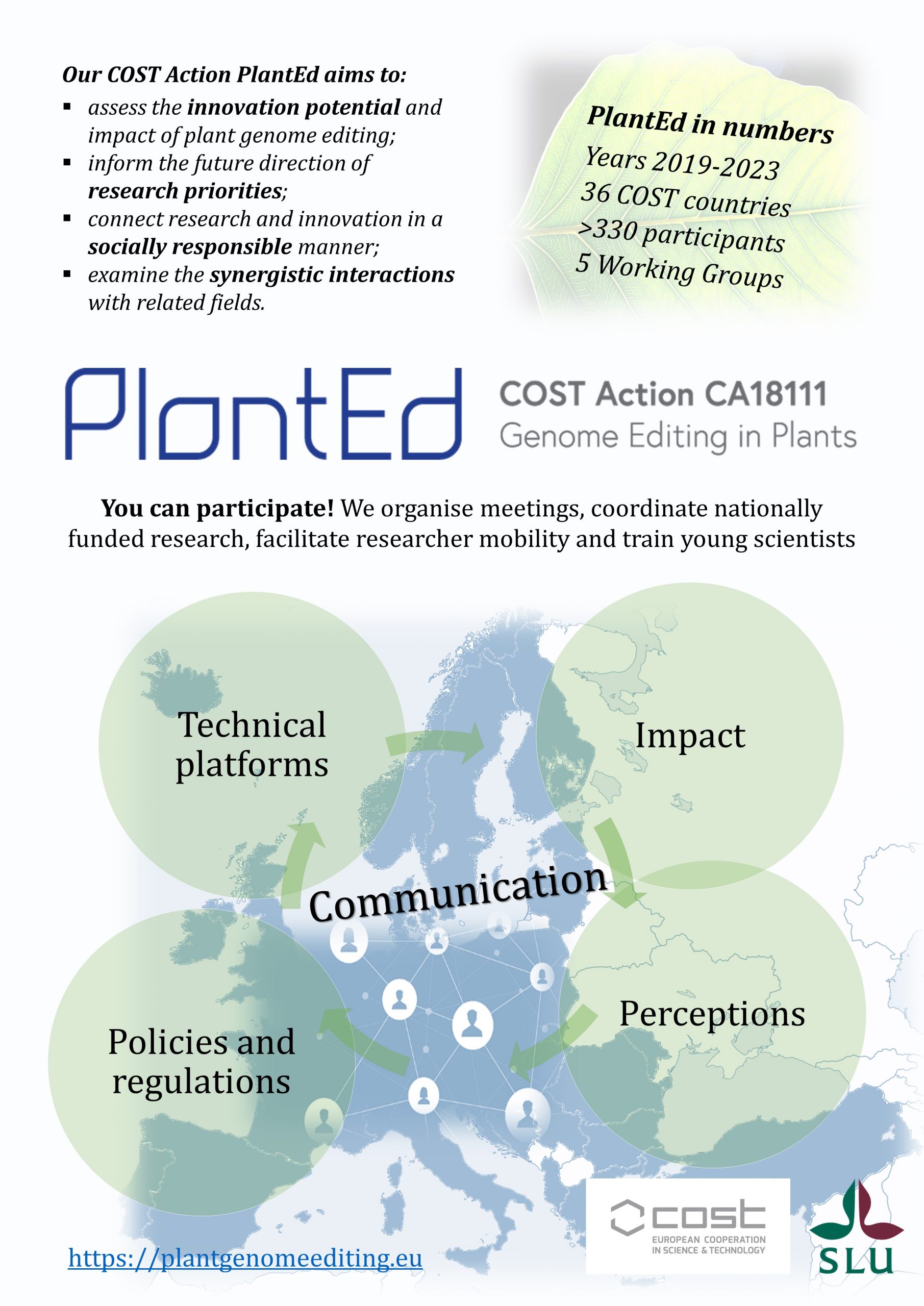The main aims of the COST Action PlantEd is to assess the full innovation potential and impact of plant genome editing; to set the future direction of research priorities; to promote the link between research and innovation in a socially responsible manner; and to examine the synergistic interactions with closely related fields.
The specific objectives are:
● Evaluation of improvements required for future crop plants for sustainable agricultural production and improved consumer health in Europe and beyond and the extent to which genome editing can be utilized to achieve these improvements.
● Examination of genome editing techniques and their comparative advantages and disadvantages in various plant research and breeding applications.
● Establishing synergies between the research needs and priorities for genome editing platforms with those of sequencing, genomics, phenomics, “big data” and systems biology platforms.
● Collection and analyses of information on the potential socio-economic, environmental and human health impact of genome editing in plant breeding and commercial development.
● Contribution to the ongoing discourse on the regulatory frameworks in the EU and other relevant countries and their potential applicability for plant genome editing, and provide future-oriented solutions if necessary.
● Contribution to the emerging intellectual property policy discussions related to genome editing and the resulting products and assess their implications for the plant research and breeding sector and for farmers.
● Clarification in terminology and give input towards workable definitions.
● Mapping the perceptions of various stakeholders of plant genome editing, identify where input from key actors could be gathered according to responsible research and innovation principles, and contribute to an enhanced public awareness.
● Enhancing existing, as well as form novel, research consortia, building further on existing national and/or international research programmes involving plant genome editing through meetings, Teaching Schools (TSs), Short Term Scientific Missions (STSMs) and other events, as well as further joint research proposals.
● Provision of opportunities for interdisciplinary training and career development of Early Career Investigators (ECIs).
● Promotion of new ERASMUS agreements between partner universities.
● Promotion of mutually beneficial interactions between the public research sector and the private R&D sector related to plant genome editing, as well as with policy makers, farmer organisations, consumer interest organisations, environmental organisations and other stakeholders, through active participation in various events.
● Dissemination of knowledge obtained in the Action through various teaching material, notably interactive Massive Open Online Courses (MOOCs) targeting undergraduate and/or graduate students, video interviews and making information and/or education material available in several of the languages spoken in Europe.
